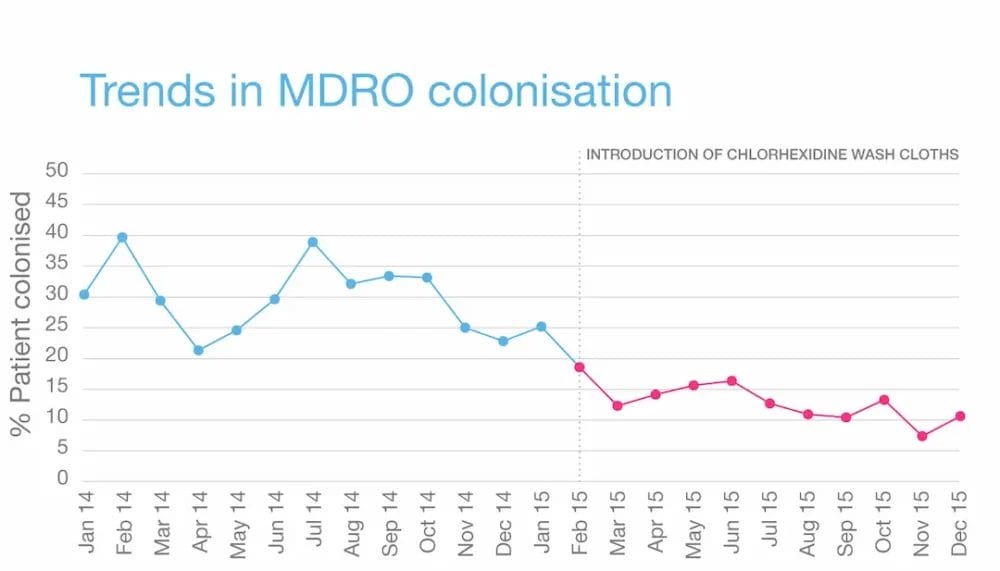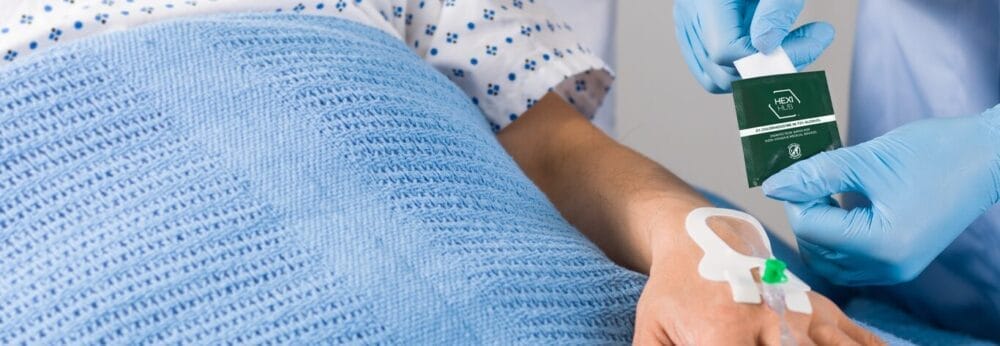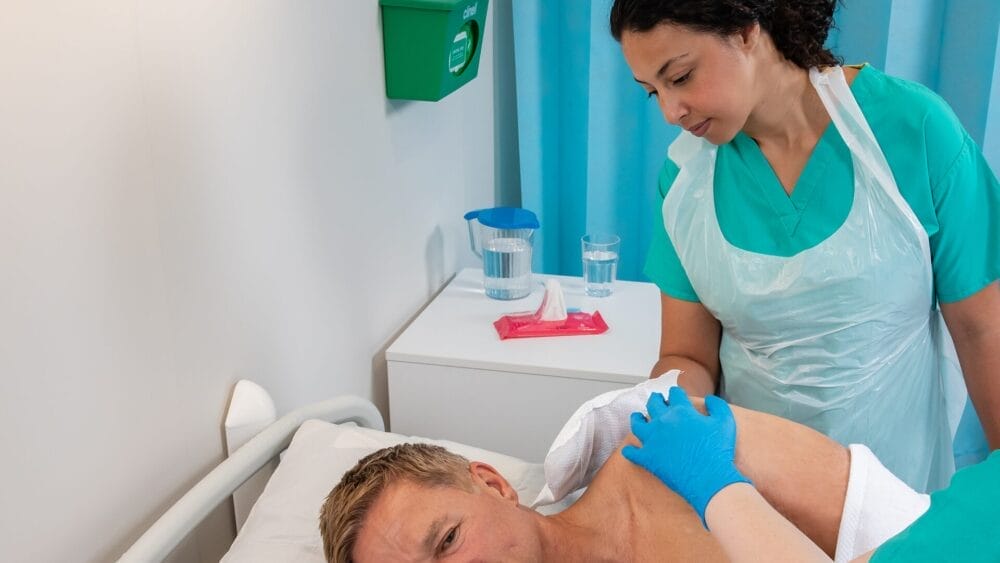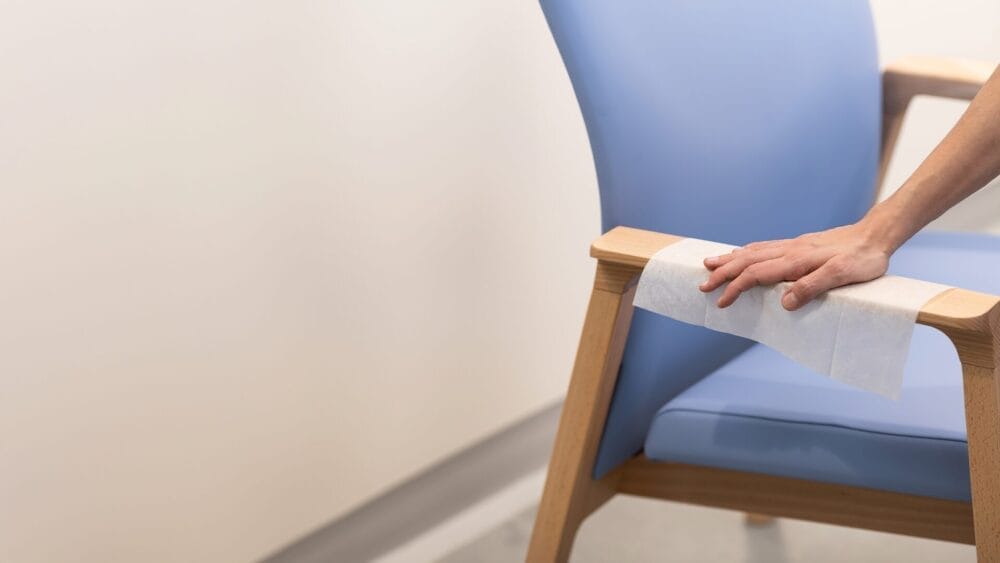Posted
11th August 2017
Products
There is accumulating evidence that daily bathing using chlorhexidine wipes prevents the transmission of MDROs. Most of the evidence to date has been about reducing Gram-positive bacterial pathogens (such as MRSA and VRE). So a study including Gram-negative bacterial pathogens (such as Klebsiella pneumoniae and E. coli) is welcome! A recent Spanish study shows that daily bathing with chlorhexidine is effective in reducing colonisation with MDROs.
The prospective intervention study was performed in a 24 bed mixed-speciality ICU in a Spanish hospital over two years. Daily bathing using Clinell Wash Cloths (2% chlorhexidine gluconate, CHG) was implemented after 11 months, to provide 12 months pre, and 11 months post intervention data. Mechanically ventilated patients and patients known to be colonised with MDROs were bathed daily using CHG. Patients admitted from other hospital wards or transferred from other hospitals were screened for MDROs on admission, and all patients were screened once per week for MDROs (or twice per week for mechanically ventilated patients).
Around 25% of patients admitted to the unit during the intervention were bathed daily using CHG. The key finding is the stark change in the incidence of colonisation with MDROs associated with the introduction of CHG (see Figure below). Importantly, there was no significant change in antimicrobial consumption on the ICU during this period. Interestingly, the authors report that no significant reduction in the incidence of MDRO colonisation was found in a surgical ICU during the same period that was not using CHG bathing, which provides a useful ‘natural’ control group for these findings. Whilst there was no significant reduction in infections in total or due to MDROs, the study was not powered adequately to detect a reduction in these outcomes. It’s a fairly safe assumption that if you reduce the number of patients who are colonised with MDROs, this will have a knock-on effect of reducing the number of infections with MDROs!

The study setting had a high prevalence of MDRO colonisation, with approximately 20% of patients colonised with one MDRO or another. Whilst this is a single centre study performed over a relatively short period of time, it provides further evidence that daily CHG bathing reduces the transmission of MDROs including antibiotic-resistant Gram-negative bacteria.
SHARE THIS ARTICLE
Tags
Latest News
Embracing sustainability and cost savings: The journey of Clinell Indicator Notes to paper-based solutions
At GAMA Healthcare, we’ve always prided ourselves on being at…
Introducing HEXI HUB: A seamless transition in our product line
We’re pleased to announce an update to our product offering…
Innovative solutions for tackling Carbapenemase-producing Enterobacteriaceae (CPE) at King’s College Hospitals
King’s College Hospital NHS Foundation Trust, one of London’s largest…
Gloves Off: reducing unnecessary plastic waste during environmental cleaning and disinfection
In this blog, Dr Phil Norville discusses the momentum-gaining ‘Gloves…




